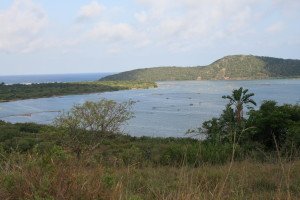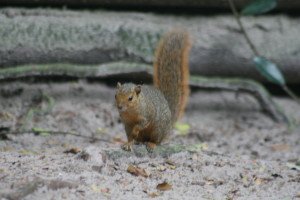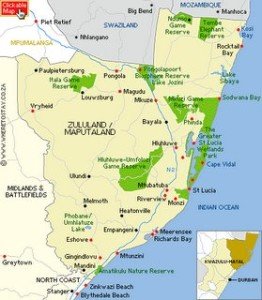Sharks’ pipeline picked apart after shameful start to the season 0
Considering the big money backing them up, the Sharks’ early form this season was shameful and led to their critics picking apart the franchise. And the consensus seemed to be that their pipeline was to blame, with insufficient depth to make up for the erratic availability and form of their many Springbok stars.
The once-vaunted Sharks Academy was a particular focal point and the franchise’s management have confirmed that revamping that feeder is a priority. Critics of the Academy say that it has become too focused on earning money – allowing lesser players to buy their way into the program – rather than being an impactful high performance set-up.
Director of Rugby Neil Powell has pointed to the success of the Sharks’ junior teams as evidence that their contracting and pipeline are perhaps not as bad as many have portrayed.
“Last season the U19s finished second in their competition, the U20s won their’s unbeaten and the U21s were beaten by one point in the semi-finals,” Powell said. “Which shows our rugby strategy revolves around having a sustainable and successful system, not just one team. We believe success in the foundation phases will filter through to the flagship team.
“We are also looking at a rebuild of our Academy. Coenraad de Villiers headed up the Western Province Academy and we want him to create a high-performance environment which is also a feeder into our system. We have two groups of U19 players here – those who are contracted and those who come to the commercial academy, which has not been a big feeder in the past few years. We’re on a journey to turn that around, which is why we’ve got Coenraad.
“We want to change the perception of the academy: we want a quality rugby program, but the teaching must also be holistic. We want to make sure ambitious kids come into the academy, the expectation is that they develop into good rugby players and hopefully kick on.
“In terms of recruitment, we follow a hybrid approach: We identify world-class talent to obtain but we also want to build through our junior structures. The thinking is that recruiting from the outside is more specific, it’s about certain positions. In a couple of years we hope to be recruiting more from our own systems than from outside.
“It’s crucial that the junior system understands what it takes to be professional, so we can make sure they can filter into the senior system. Players will also not leave if they have love for the Sharks, if they feel at home here. The plan is to bring players through from U21 to the Currie Cup, blood them there, and if they pass that test then they can move on to the United Rugby Championship,” Powell said.
Sharks chief executive Eduard Coetzee, who will vacate his position in July to take up a post in Europe with MVM Holdings, the franchise’s majority investors, has said, however, that they will continue to target high-profile signings as well. He says big-name signings are good for the brand and encourage further investment from commercial partners.
“The market perception is that we contract from the top down, but other teams do this too. The schoolboy pathway is unbelievably important for us too. We have 10 schools in KZN who play at the elite level and they have probably been over-aggressive in scouting for players. In terms of rugby scholarships, R75 million is spent annually by those schools. It’s not healthy, but it’s not just in KZN that it is happening.
“We have to build a programme in conjunction with what the schools are doing. We track players from U12 and we filter in the ones good enough to play professional rugby. From U15 they come through our system and junior structures and they become Sharks. It’s important to have numbers in our academy, while Neil Powell and John Plumtree focus on high performance, and there needs to be a synergy between those two. Just filling in numbers is not good enough for what we require. The academy was owned by third parties, but that has now all been bought back and we hope that it will be an environment that young kids want to be part of.
“Sometimes we do bring in someone with celebrity power, but our focus is definitely our pipeline, so hopefully that dispels that myth. We do have so many Springboks and that has led to long discussions at Board level. It’s wonderful for the Sharks to have World Cup winners walking around Kings Park. Pre-Covid, we had R60 million worth of sponsorship and in the last four years we have doubled that. I believe people and businesses see something different about us: I would say it’s the way we treat each other and the reach of our brand.
“But we are almost victims of our own success having so many Springboks, and there has been a shortfall in terms of our rugby. We are planning the whole make-up of our squad totally differently next season,” Coetzee said.
Former Springbok wing JP Pietersen is an integral part of that planning.
“Our focus points are our coaching structure – to have the right people in the right places; the recruitment and elevation of senior players; a long-term succession plan for our junior group; and the culture and environment of the Sharks,” Powell said. “We want consistency across our structures in terms of coaching and culture. If possible, we would like to fill all coaching vacancies from within the system. JP Pietersen is the head of our junior structures and is also very passionate about the Sharks. He came here as a 19-year-old and went on to play 70 Tests. This is his home.”
While a group of happy players is obviously a positive, some critics say the Sharks are all about the good vibes and culture but are lacking the hunger and grit that comes from hard work.
“The aim is to have a culture that is tough but enjoyable, and to ensure that all the players we recruit can fit into that culture. If we make things too easy, then there won’t be a high enough work ethic and the players will not get fulfilment. Healthy internal competition is how you get the best out of the players,” Powell said.




